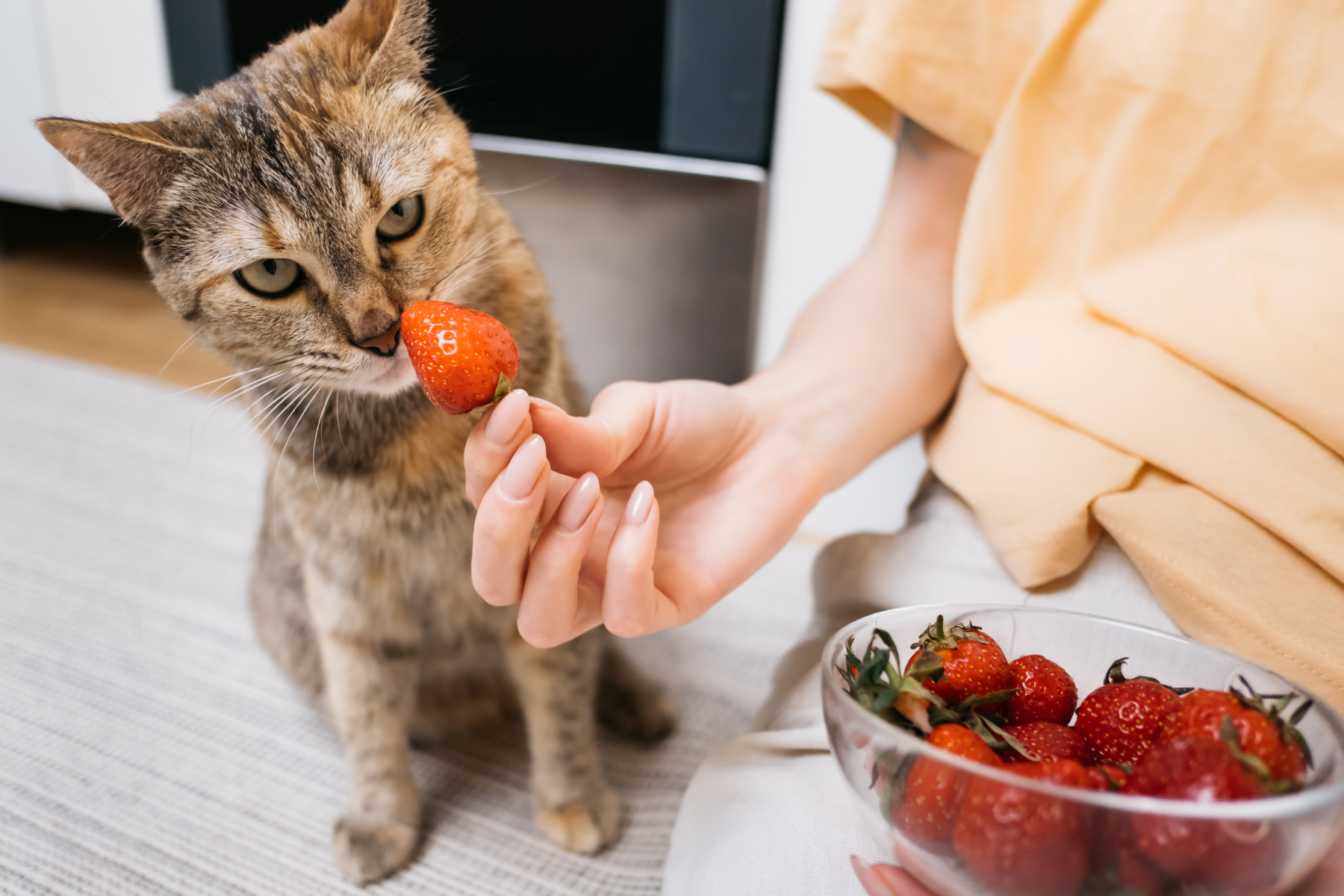Can Cats Safely Eat Strawberries?
As obligate carnivores, cats possess a digestive system specifically honed to process animal proteins rather than plant material. When considering cat strawberries consumption, it's essential to note that while strawberries are not toxic, their place in a cat's food regimen should be minimal. Cats lack the digestive enzymes to break down most sugars and fibers efficiently, so introducing a single strawberry as a novel snack is mostly safe, but only in moderation. While some cats may show curiosity about the fruit due to its color or scent, most do not prefer sweets, reflecting their evolutionary focus on a protein diet. Owners must take care to remove strawberry leaves and stems before feeding, as these parts often lead to gastrointestinal upset or even potential gastrointestinal obstruction. Serving the berry in small, manageable pieces helps avoid choking. Despite occasional safe consumption, keep in mind that repeated exposure may increase risks if underlying sensitivities exist. As a general rule, the majority of a cat's diet should consist of high-quality meat-based nutrients, with non-meat snacks like strawberries only reserved as infrequent, low-calorie treats.
Nutritional Value of Strawberries for Cats
The content in strawberries is often praised in human diets for its vitamins, fiber, and water content, but these benefits do not translate directly to cats. Since cats naturally produce vitamin C and cannot utilize most plant-based nutrients, the addition of strawberries offers them a slight advantage for their digestive health. Furthermore, the small amount of fiber may irritate their already sensitive digestive system if consumed in excess, leading to digestive upset or gastrointestinal issues. The water content in strawberries may provide mild hydration, but wet or moist cat food is a superior source. Unlike snacks such as the Catstages Kitty Cube Cat Treat Puzzle Toy, which encourages mental engagement while providing compatible nourishment, a strawberry is purely a curiosity and not a functional snack. Attempting to enhance a cat's diet with berries or other plants does not meet their unique nutritional requirements, emphasizing the necessity for a balanced, meat-first diet.

Potential Risks and Allergies
Feeding a cat strawberries comes with potential risks every owner should consider. Symptoms of intolerance can range from mild digestive upset and gastrointestinal issues to more pronounced allergic reactions such as itching, swelling, or vomiting. Because cats have more delicate digestive systems compared to omnivores, even the natural sugars in a single strawberry may upset their internal balance. Care must also be taken to avoid feeding strawberry leaves or stems, as their consumption frequently leads to gastrointestinal obstruction or toxic effects. In rare cases, cats may be susceptible to the fruit's acidity, which can manifest as stomachaches or increased drooling. Prompt veterinary attention is advised if such symptoms arise. When compared to the dangers of ingesting toxic foods like apple seeds, strawberries are considered at least non-toxic, but caution and moderation are always advisable.
Serving Size and Preparation Tips
For those choosing to offer homemade cat treats, including strawberries, the key is preparation and portion control. Begin by thoroughly washing the fruit to remove pesticides, then slice off the strawberry leaves and stem, which can provoke digestive upset or even choking. Only a single strawberry should be served at a time, cut into tiny chunks that a cat can nibble without risk of choking. Avoid mixing berries into dishes like strawberry jam, as added sugar and preservatives can lead directly to gastrointestinal upset. Rather than relying on fruits, offer strawberries as an occasional novelty, not a dietary supplement. Monitor your pet closely after the first introduction for any hint of gastrointestinal issues. If your cat exhibits no adverse reaction, future servings should remain rare and deliberately small, always secondary to their dedicated protein diet.

Comparing Strawberries with Other Fruits for Cats
In the world of feline-friendly treats, cat strawberries stand out as relatively safe when prepared correctly, but are not particularly nutritious compared to animal-based snacks. Some fruits, such as apples, present hidden dangers in the form of apple seeds, which are highly toxic. Others, like citrus or grapes, are known for causing more severe digestive health problems and should never be given to cats. The best alternatives remain freeze-dried pieces of lean meats or approved treats that are designed to work with feline biology and the digestive system. While strawberries may occasionally be used as part of homemade cat treats, keeping the serving to a single strawberry helps minimize the risk of digestive upset. Always remember that whatever the treat, it should be a rare deviation from the standard, meat-centered diet.
Understanding Feline Dietary Needs
A cat's digestive system is built to extract optimal nutrition from a protein diet sourced from animal tissues, not plants. Cats flourish when fed nourishment rich in animal proteins, taurine, and vital fatty acids, all of which are absent in fruits like strawberries. Adding plant-based treats, even innocuous ones like strawberries, does little for their bodily systems and may even foster gastrointestinal issues if the balance is upset. True enrichment comes from well-designed feeders or interactive toys, such as the Catstages Kitty Cube Cat Treat Puzzle Toy, which provide both physical stimulation and compatible nutrition. The foundation of healthy living is always a scientifically formulated cat food that respects the intricacies of the feline digestive system.

When to Avoid Feeding Strawberries to Cats
Cats vulnerable to illness, particularly those managing diabetes, obesity, or previous episodes of digestive upset, should generally avoid strawberries and most other fruits. Likewise, kittens and elderly cats, whose digestive systems are more sensitive, may struggle with the heightened risk of gastrointestinal issues or intolerance. If a cat is receiving treatment for chronic digestive health problems, owners should not introduce unfamiliar foods, such as strawberries, without first obtaining explicit veterinary consent. Adverse reactions, such as persistent vomiting or changes in bowel habits, are a clear sign to discontinue the treatment. When in doubt, stick to a robust protein diet and proven enrichment toys or puzzles rather than experimenting with human foods.




















